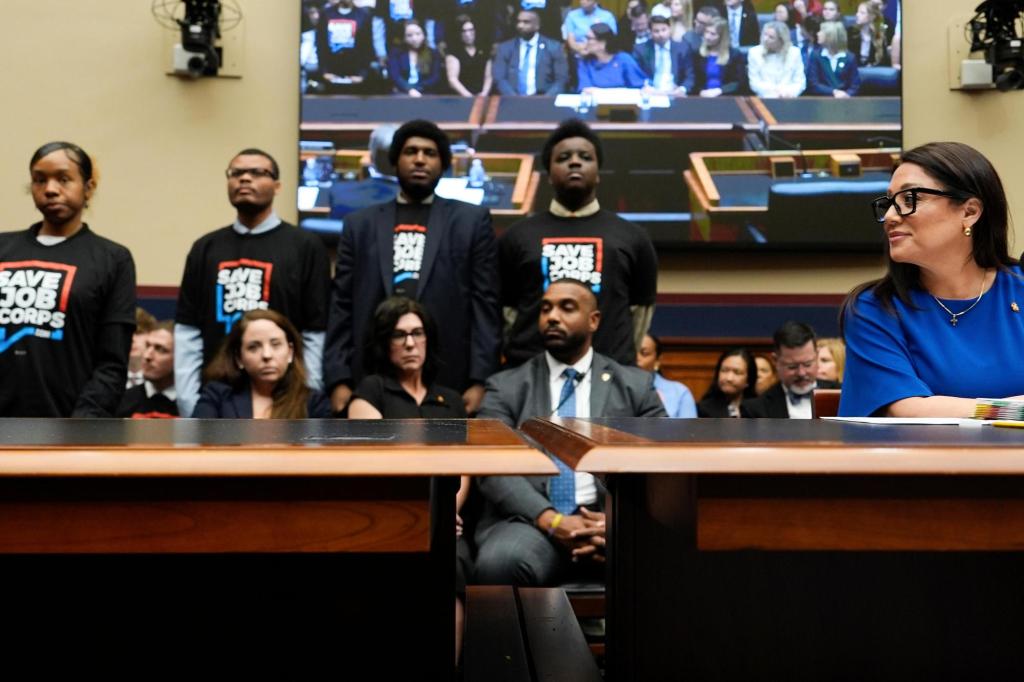
By CATHY BUSSEWITZ
NEW YORK (AP) — In a significant legal development, a federal judge has temporarily halted the U.S. Department of Labor’s plan to suspend Job Corps, a program dedicated to assisting low-income youth, through a preliminary injunction. This decision will maintain the program’s operations until a lawsuit challenging the closure is resolved.
U.S. District Judge Andrew Carter’s injunction supports an earlier temporary restraining order, which demanded the Labor Department to refrain from disrupting the Job Corps program, emphasizing the need for congressional approval before any major operational changes.
History and Purpose of Job Corps
Job Corps, established in 1964, is designed to support teenagers and young adults who have struggled in traditional educational settings. The program offers tuition-free housing, vocational training, meals, and healthcare at residential centers.
“Once Congress has passed legislation stating that a program like the Job Corps must exist, and set aside funding for that program, the DOL is not free to do as it pleases; it is required to enforce the law as intended by Congress,” Judge Carter stated in his ruling.
Department of Labor’s Position
Labor Department spokesperson Aaron Britt expressed confidence in the legality of their actions, stating the department is collaborating with the Department of Justice to evaluate the injunction.
In May, the Labor Department announced plans to pause operations at contractor-run Job Corps centers by June’s end, citing low graduation rates and financial inefficiencies. However, Judge Carter dismissed the department’s assertion that they were merely pausing activities, arguing the closure efforts were explicit attempts to shut down the centers.
Impact on Students and Legal Proceedings
The potential closure posed significant threats to students, with Judge Carter highlighting the plight of a student in New York who could face homelessness if the program is terminated. “The way that the DOL is shuttering operations and the context in which the shuttering is taking place make it clear that the DOL is actually attempting to close the centers,” Carter noted.
Edward DeJesus, CEO of Social Capital Builders, remarked on the detrimental effects such abrupt closures have on students striving for better futures. DeJesus said, “Many of these young people live in uncertainty, so it takes time to get housing and restore a lot of those supports you need when you’ve been away from your community for so long.”
The National Job Corps Association, representing various organizations, initiated a lawsuit to prevent the suspension of services, warning it could displace tens of thousands of young individuals and precipitate extensive layoffs. Additionally, attorneys general from 20 states have backed the effort with an amicus brief.
Personal Accounts and Program Benefits
Job Corps participant Monet Campbell shared her transformative experience with the program, which helped her secure multiple certifications and provided essential support, including housing and healthcare. “I always got told all my life, ‘I can’t do this, I can’t do that.’ But Job Corps really opened my eyes to, ‘I can do this,’” Campbell said.
Campbell’s uncertainty reflects the broader unease among participants as they navigate the looming threat of program suspension. She, along with others, experienced temporary displacement due to federal budget cuts.
There are currently 123 Job Corps centers across the U.S., mostly operated by private entities under Labor Department contracts. These centers serve more than 20,000 students nationwide, according to legal documents.
Susan Haigh in Hartford, Connecticut, and Rebecca Boone in Boise, Idaho contributed to this report.
Originally Published:






